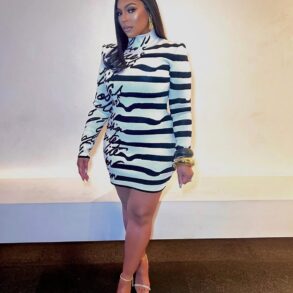
It’s the early 2010s and I am in Beverly Hills. The sun is blazing down, like a glorious lemon cake, and the air smells sweet, like palm tree wood and perfume. Every single lawn glitters green and immaculate. I need to live like this one day, I remember thinking, in that way you do when you’ve just been seduced by someone fit who’s clearly bad news. I have to earn some money. My mind swims, with visions of high rise offices and six figure salaries and iced coffee in a Jeep. There’s only one solution: I must become a girlboss. A She-E-O. A media mogul with scented, tousled locks.
A decade later and, er, I’m not living in Beverly Hills (yet!). I live in South East London, on a freelance writer’s wage, which isn’t much against the backdrop of the cost of living crisis. I am also, I have to say, not a girlboss. I quit my job as a senior editor at a major publication earlier this year. I don’t work nonstop, without breaks, and my Google calendar does not contain things like “Yoga at 6, meetings until 3. Pick kids up at 4, followed by Pilates.” I still can’t drive. My days are chill: I write, drink coffee and read. I’m probably closer to a 1990s-style slacker than a millennial girlboss, although I don’t wear flannel. Like most people, I’m just trying to get by.
Culturally, much has changed in the decade since my semi-ironic-but-also-not-quite girlboss dreams. The girlboss herself has become cringe, pastiche, an embarrassment in her dedication to the “rise and grind.” Mostly, thankfully, she’s now recognized for what she always was: an apparition for those who aren’t wealthy to begin with. Just as in the late 1980s, the myth of the woman who can “have it all” has crumbled in the face of rising rent prices, stagnant wages, and anaemic-looking peppers being sold at your local supermarket for $1 each. The days of metal water bottles reading #slaythedayaway are long gone. We’re living in a post-girlboss era.
That said, in the past few years, I’ve noticed that it’s not just our cartoonish idea of the girlboss that has vanished—the one with The Wing membership and balayage hair—but also the “career woman” more generally. I grew up watching films like The Devil Wears Prada, Legally Blonde, 13 Going on 30, and The Princess Diaries—stories that fed me ideas about what success might look like (brunch dates, high cortisol, designer handbags). The career woman was glamourized, romanticized, with their work ethic pushed front and center. But now, this archetype on screen has all but disappeared (with the exception, perhaps, of reality shows like Selling Sunset, although that feels more like money porn than “you, too, could become a millionaire estate agent”).
This post was originally published on this site be sure to check out more of their content.









